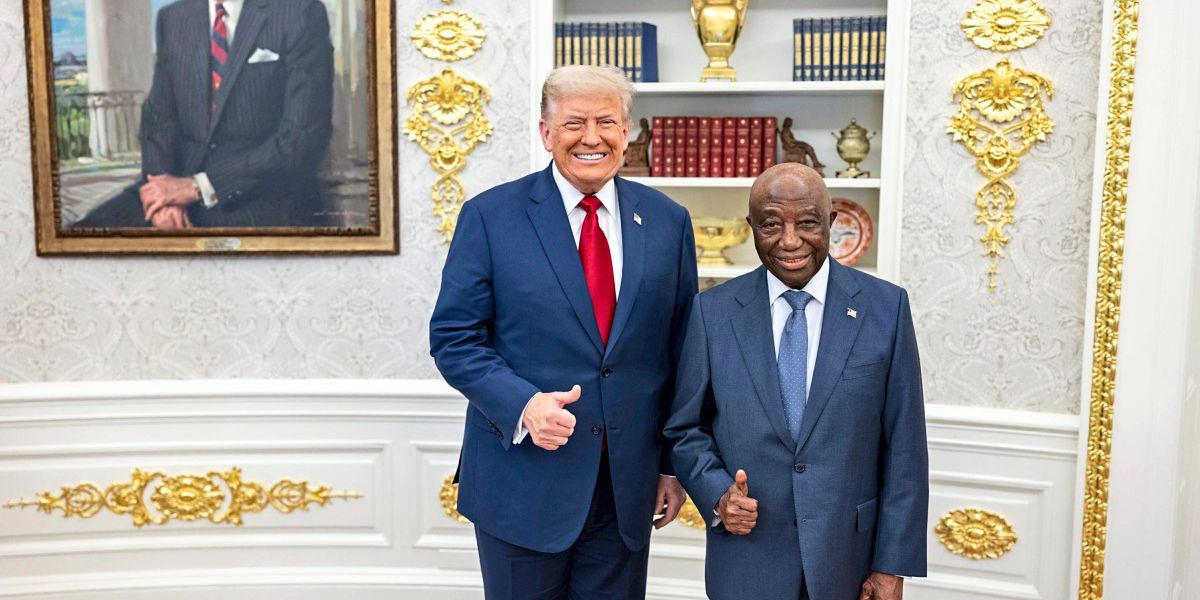Trump's "Wonderful English" Comment Causes Stir

US President Donald Trump may have stumbled into an awkward moment during a meeting with the President of Liberia, Joseph Nyuma Boakai, and other African delegates at the White House. Trump complimented President Boakai on his "wonderful English," a remark that some have seen as a bit of a gaffe.
Liberia, a country on the west coast of Africa, was founded nearly 200 years ago by freed slaves from the United States. Because of this history, English is the official language of Liberia. President Boakai speaks English fluently, as do many Liberians.
During the meeting, Trump reportedly asked Boakai, "Such good English, it's wonderful. Where did you learn to speak so well? Where, where were you educated? In Liberia? That's very interesting, wonderful English. I have people at this table who can't speak nearly as well."
President Boakai apparently handled the situation smoothly, emphasizing the strong relationship and friendship between Liberia and the United States. He even welcomed Trump's "Make America Great Again" initiative. It's unclear if his remarks included any hint of irony.
Some observers felt that Trump's comment was condescending. One diplomat, speaking anonymously, told CNN that the question implied a view of Africans as uneducated. He stated that the comments were "not appropriate" and "a little patronizing."
However, White House Deputy Press Secretary Anna Kelly defended Trump, saying the comment was meant as a "heartfelt compliment." Massad Boulos, a Lebanese-American businessman and Trump's advisor on African affairs, also supported the President. Boulos, whose daughter is married to Trump's daughter Tiffany, said everyone at the meeting was grateful for Trump's time and effort, and that Africa had never had such a friend in the White House.
Liberia's history is unique. It was established in 1822 by the American Colonization Society with the goal of resettling freed American slaves in Africa. Liberia declared its independence in 1847. Along with Ethiopia, it's one of the few African countries that were not colonized by European powers in the 19th century.
While English is the official language, many other languages are spoken in Liberia. The Liberian constitution states that only people of African descent can become citizens. A form of English mixed with local words is commonly used in everyday conversation. Education levels in Liberia are rising faster than in many other African countries.